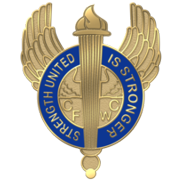Get a pdf of Good Leaders, Protocol, & Email Etiquette
Good Leaders
Good leaders should be enthusiastic, flexible, have a positive attitude, and be prepared for anything. Their character is warm and friendly, and honest and fair. They also know when to share and delegate.
Sharing responsibilities keeps members interested and enthusiastic about your club. You might be reluctant to delegate because you want to make sure the job is done “right.” However, your way is generally only one of a variety of ways that a job can be done well. If club members are not asked to take on responsibility, they may feel unimportant and become uninterested.
When a leader delegates responsibilities, members:
- Become more enthusiastic, involved, and dedicated
- Share tasks, allowing the club to undertake more projects and activities
- Can complete club projects in a time-efficient manner
- Develop skills and experiences that allow them to step into club leadership roles
- Grow a club that runs smoothly and effectively
Benefits to Leaders
- Not being spread too thin and “burning out”
- Gaining satisfaction from watching members grow and develop
- Acquiring more experience in executive and administrative functions
Ways to Delegate
After thoroughly explaining the requirements and deadlines:
- Ask for volunteers by a show of hands or sign-up sheet
- Appoint or suggest someone for the task. This shows confidence in her ability and potential
- Assign the task through a committee to take the pressure of the individual or new leader
Guidelines for Effective Delegation
- Support members by sharing resources, information, knowledge, and plans with them. Delegate meaningful segments or portion of tasks
- Discuss the assigned task and mutually set goals and objectives. Clearly define the responsibilities, expectations, and bounds of authority for each delegated task. Emphasize the end goal, rather than the steps to encourage creativity and innovation, while retaining focus
- Give accurate, honest, and tactful feedback to encourage growth
Really delegate! As a leader, it can be hard to let go because you like being the doer, but let your appointees do their assigned jobs.
How Can You Build Leadership?
- Take advantage of our diversity. Each individual member brings unique skills to the club
- Mentor new leaders. Support them with suggestions. Encourage participation in all CFWC activities
- Share the work. It is easier if members join in planning meetings, participating in projects, or writing reports
- Be generous in showing your appreciation
Protocol
Protocol refers to the code of formal procedure and politeness important to the smooth running of an organization. It is simply good manners in an atmosphere of friendliness and politeness.
Introductions
- Give proper recognition and respect to officers and guests
- The presiding officer presents those seated at the head table, starting at the extreme left of the presiding officer and introduce each person in order, ending with the person at the left of the presiding officer. Then, beginning with the person at the extreme right, each person is introduced, ending with the guest of honor, usually seated at the immediate right of the president
- Past Presidents should be extended every courtesy. It is customary to start with the one who served most recently and the others in order near to far
Speakers
- An introduction of a speaker should be brief
- Ask for a brief biography
- If a speaker is late, wait 10 minutes before continuing with your program
- If the speaker goes beyond their allotted time, slip them a note letting them know that they have 1-2 minutes left
- Write or call your guest speaker when you have selected your program
- If calling, be sure be sure to follow up with written confirmation
- Let them know their allotted time and approximately the time they have to speak
- Give them all information that they will need
- Give them some idea of what you would like them to talk about
- Allow time for question and answer when they are finished speaking
- If the trip requires an overnight stay, suggest types of accommodations available
- If speaker is flying, she should be informed of the nearest airport and should be met and escorted to where she will be staying
Gifts
- Please avoid expensive gifts
- If a gift is given, it should be simple and useful. Inquire about a person’s interests or collections
- A donation to the Itinerary Fund makes an appropriate gift for Federation speakers
Members
- Be on time for meetings.
- Adhere to deadlines
- If giving a report, watch the agenda and be near the microphone or front of the room, not in the back of the room
- Refrain from disturbing the meeting through whispering or restless behavior.
- Avoid walking between the presiding officer (or head table) and the audience. Go around through the back of the room.
- If you need to leave the room, do so quietly.
- Obtain the floor before addressing the group.
- Name badges should be worn on the right side. Club pins can be placed on either side, but are usually worn on the left
State Board Meetings
- State Board meetings are hosted by the Districts in which the meeting is being held, assisted by Clubs. Plans and arrangements are coordinated with the State President, Amenities Chairman and Meeting Planner
- Decorations are done by the District. They should be simple and inexpensive.
- The District hosts a reception once during a State board Meeting
Area Meetings
- The duties of a District or Club when hosting an Area Meeting are
- To provide a meeting place, luncheon arrangements and meal reservations
- To help program planning if requested
- To supervise the physical setup of flag microphone, lectern, etc
- The official host is the Area Vice President
State Convention
- The State President is the official hostess
- The official representative is the Area Vice President in whose area the convention is being held
Email Etiquette
Email is both an opportunity for greater productivity and a source of abuse depending on how it is used. Because email is so convenient, people can send dozens of messages each day! Have respect for those receiving your messages by keeping them brief.
Instead of checking your emails constantly, which is really quite unproductive, set a time once or twice a day to check. Take time to answer your emails during the same time frame. Do not let them ‘pile’ up, thinking you will answer later. You can waste valuable time by having to re-read earlier messages to remind yourself what they were about. If you receive a message that will take time to answer, let the sender know immediately that you received their message and that you will answer it at your earliest convenience.

